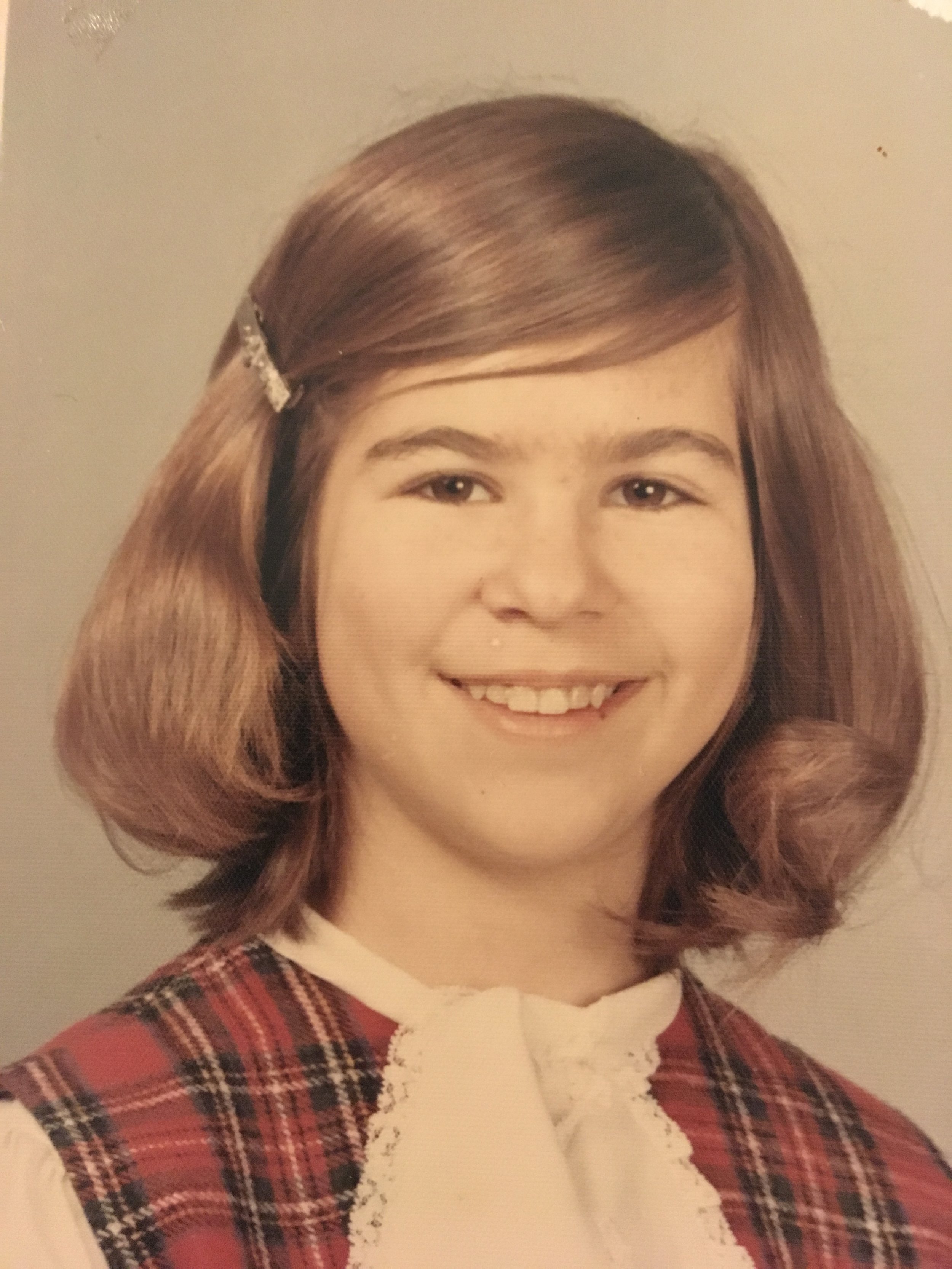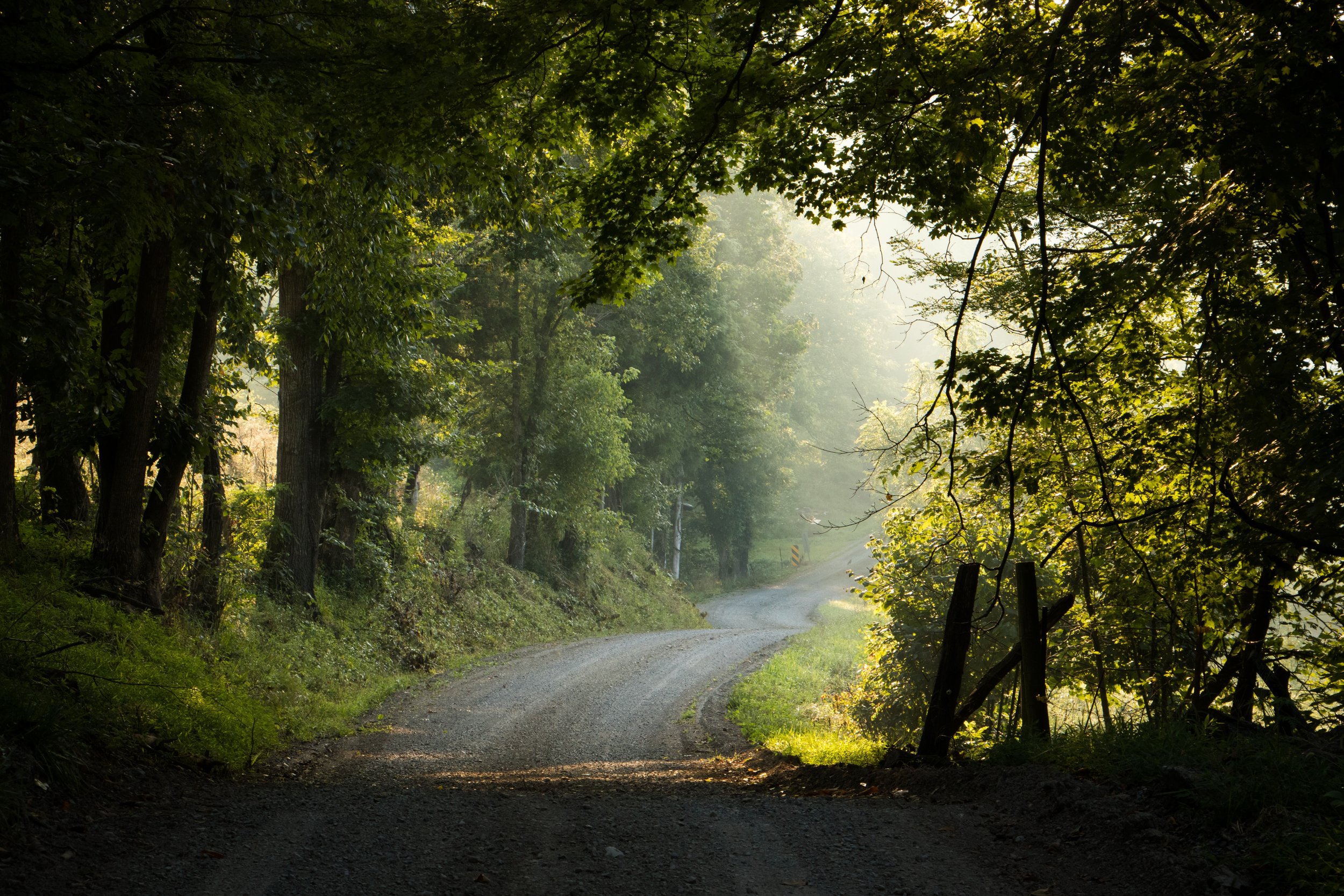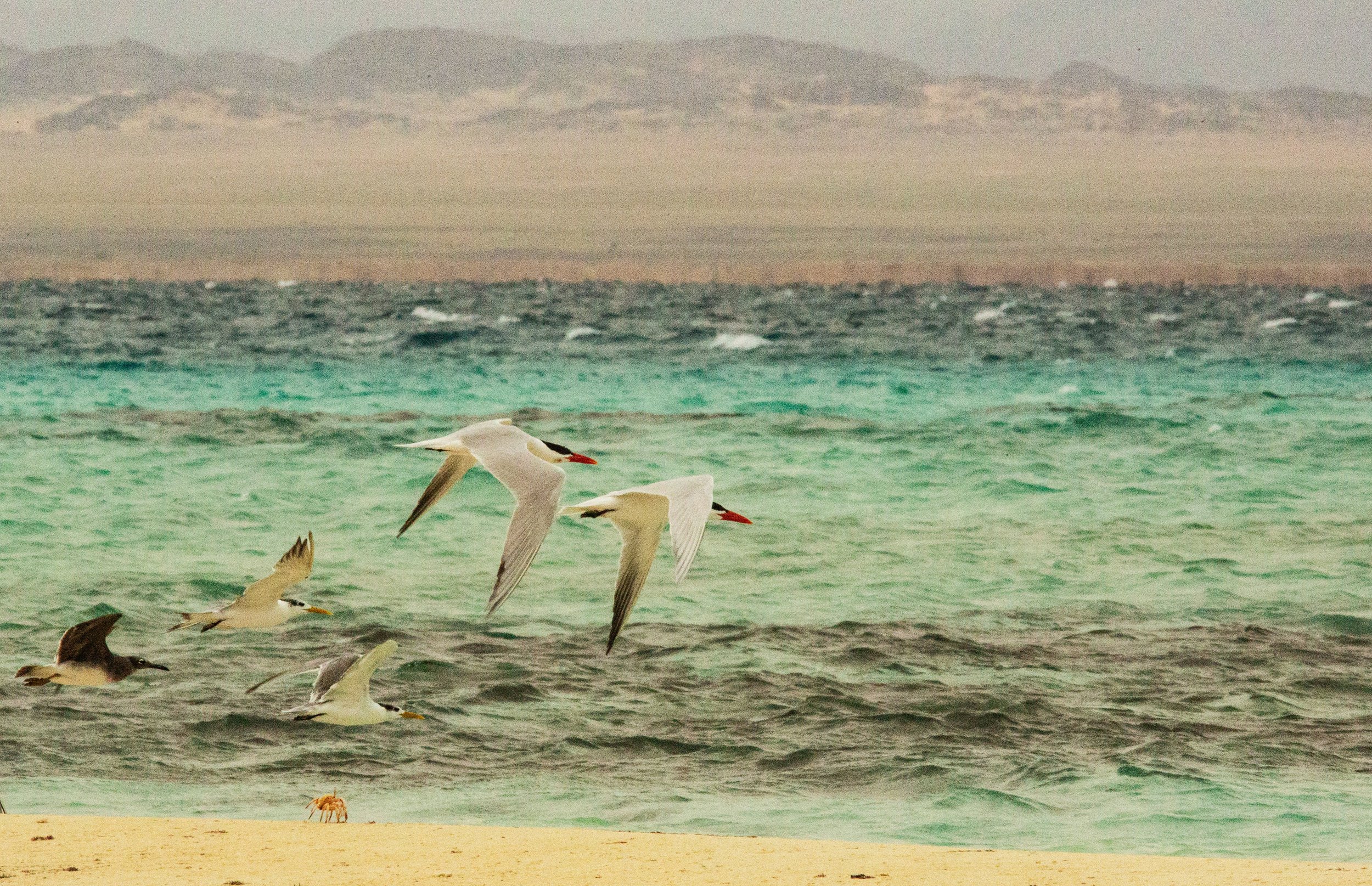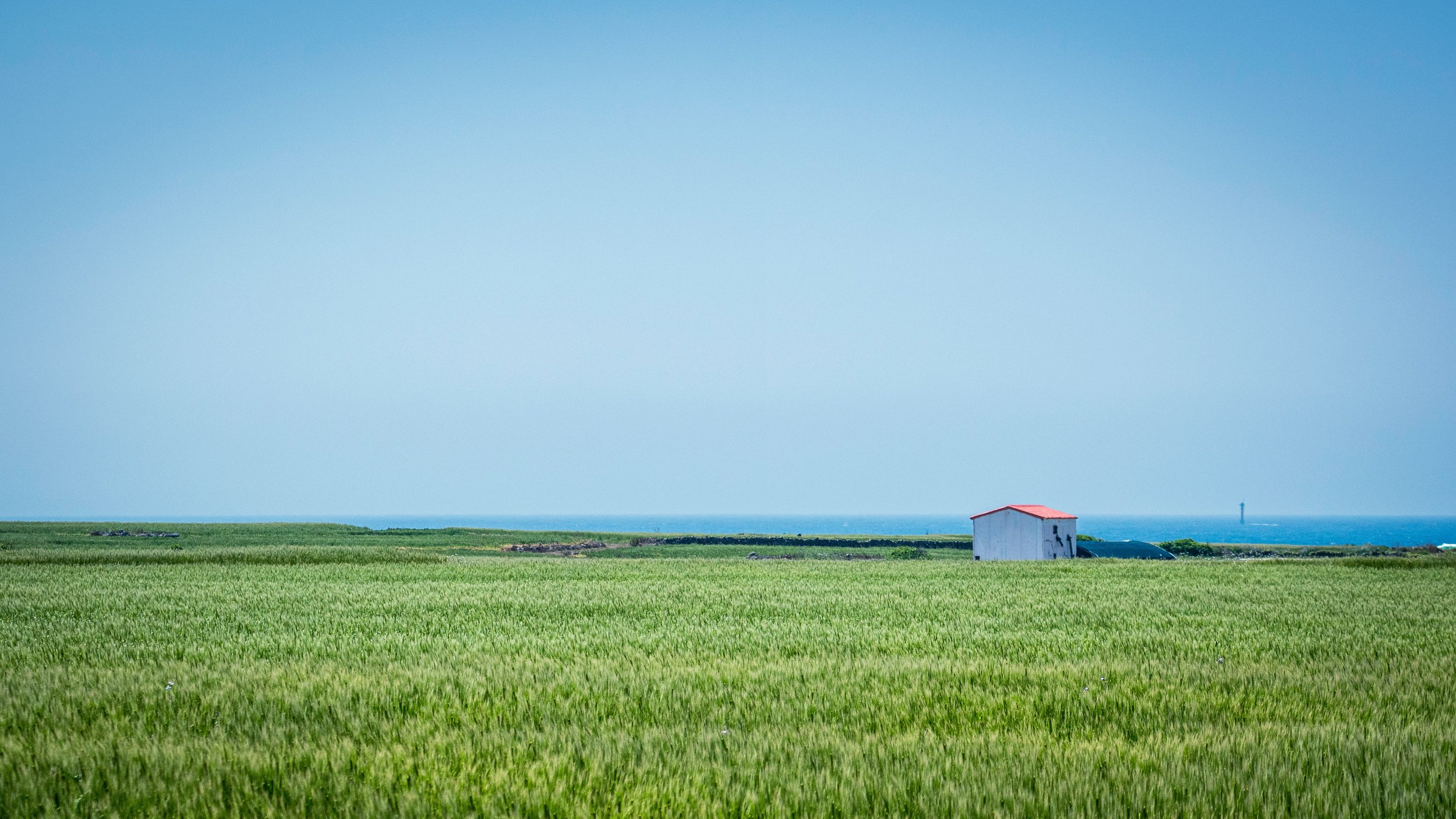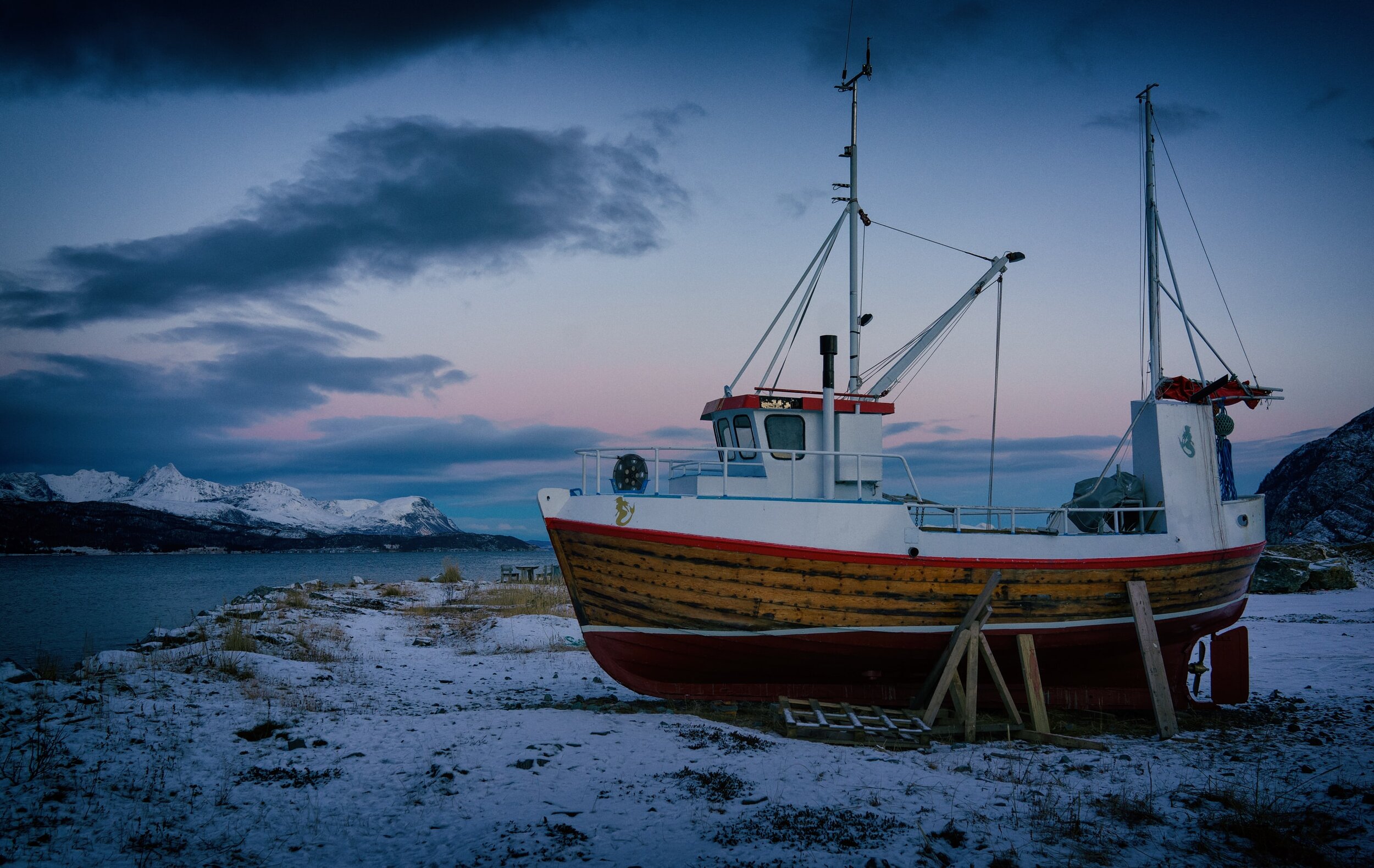Books in the Attic: On the Weirdness of Reading Harper Lee in Scotland
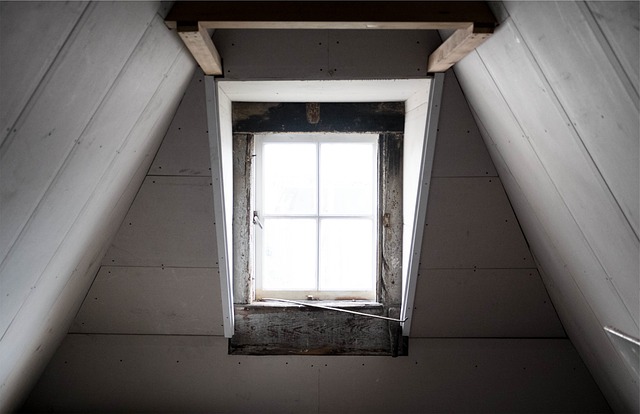
We ate breakfast on the train from London to Scotland, and my little sister didn’t want the sausage, so she put it in her yellow canvas pocketbook. With our parents at another table in the dining car, we were free of supervision, and the sausage remained in my sister’s bag, soon forgotten.
We were on our way to visit a wartime buddy of my father’s in Aberdeen. It was the 1970s and I was twelve, the oldest child, prone to sudden gusts of anger as well as self-doubt. A lover of books and all their romantic possibilities, I had no love interest on the horizon, to my deep regret.
The house in Aberdeen was narrow, steep, and crowded, with twelve of us between the two families. I must have fled to the attic for solitude, away from the noise and scrum.
I do not ever, then or now, travel without reading material, but after nearly a week on trains and planes, I’d exhausted every book I had with me. Ducking beneath the slanted roof, I poked through the messy shelves, finding picture books and that vast category I characterized as “boring-adult.”
Perhaps it was the child on the cover with straight brown hair and bangs, like mine, that drew me in. On the first page, the narrator’s brother had broken his arm, just as I had two years earlier. I flexed to see whether mine had healed crookedly, the way Jem’s had. On the third page, I saw a word I wasn’t allowed to use, wouldn’t even have considered saying aloud. I was hooked.
Crouched in the attic, I read To Kill A Mockingbird, transported 4,200 miles from Scotland to Alabama, vaguely surprised to find an American novel here at all. I was transfixed by the story—of a brother and sister, their lawyer father, their housekeeper—but confused by characters whose racially intermingled lives were governed by very different rules than those of my homogenous New Jersey suburb, where I met no African Americans other than when we visited my grandparents in Philadelphia. I envied Scout and Jem their freedom to roam the dusty streets, poking into hollow trees and spinning tales about unseen neighbors.
“I knew this book was of a different order from anything I’d ever read, narrated by a child several years younger than I but sophisticated in ways I didn’t entirely understand, set in a part of the United States that to my twelve-year-old eyes seemed more foreign than the country I was visiting now.”
After several chapters, I had worked out that the novel was set during the Great Depression, but I had no experience of the Deep South and at the time I knew next to nothing about the vexed history of race relations from the Civil War to the civil-rights movement. I knew this book was of a different order from anything I’d ever read, narrated by a child several years younger than I but sophisticated in ways I didn’t entirely understand, set in a region of the United States that to my twelve-year-old eyes seemed more foreign than the country I was visiting now.
I had little time to think about the book. Our host in Scotland, Sandy MacDonald, was an energetic, large-boned physician who kept us busy. I envied his wife her beauty, her wavy blonde hair, the effortless way she could keep several conversations going at once. She insisted I try yogurt, at the time not yet an American staple, a strange, sour concoction served over breakfast cereal that was nothing like the Frosted Flakes we ate at home. Their children were roughly our ages, the oldest a couple of years younger than I, the youngest just three. I’d decided that as the oldest child in our family, I would return from our trip with a sophisticated British accent, but our hosts spoke with a soft, tongue-twisting burr, impossible to imitate.
Meanwhile, the dialogue in the novel I was reading was direct, blunt, sometimes even profane, like,
“Do snakes grunt?”
“It ain’t a snake,” Jem said. “It’s somebody.”
“Ain’t” wasn’t a word used in our house, not ever, a foretaste of what was to come in later chapters.
In Aberdeen, we went to castles but also to a department store where we bought kilts and thick, woolly sweaters that made me sneeze. It was a city of stone, with cobbled streets and granite buildings that seemed heavier and more rooted in time than our clapboard farmhouse in New Jersey. After a few days, our two families were to go to a village called Inverkirkaig for a hiking holiday, and I smuggled the book with me, hungry for the story’s homestretch.
I didn’t completely understand what was happening: a black man, Tom Robinson, was on trial for an unspeakable crime against a white woman, and Scout’s father, Atticus, was defending him. Words like “whore” and “rape” had no place in a book about children, I thought, embarrassed, as if the adults around me could overhear my speculations. Scout was younger than I was but far more worldly. Like her, I found Jem intimidating, fascinating, infuriating. I walked with my family, ruminating on Scout’s perspective, until we pulled into a Scottish rental car parking lot and picked up our sedan, a car half the size of our station wagon back home, to hold the six of us and our luggage.
Like the cabs we’d taken in England, this car had a steering wheel on the opposite side of American vehicles. We watched from the back seat as my father negotiated traffic on the wrong side of the road, my mother grimly clutching the map, our alarm mingled with glee at seeing our parents out of their element. I suddenly wondered if my father would ever shoot a mad dog, the way Atticus had.
“Ain’t everybody’s daddy the deadest shot in Maycomb County.”
Then I remembered that he had once killed a poisonous snake with a shovel. So that was something.
“The monsters in this book were human, it seemed to me, more frightening and complex than what might rise out of a loch in this fairy tale land of sheep and fishermen and bagpipes.”
Following our hosts in their car, we traversed one-lane roads that pulled us deeper into the mountains, passing tiny farms with uneven, rocky fields on either side. Once or twice we stopped to allow a flock of sheep to amble across the road. The air was misty and cool.
Inverkirkaig turned out to be a tiny hamlet near a lake, with a single store where we bought sausages and canned vegetables. The adults had rented a cottage, but we six older children would be staying by ourselves in a camping trailer—they called it a caravan—leaving the two little ones to sleep inside. As the oldest, I felt I should have some authority, as Jem did, but I saw no real opportunity to exercise it over my fractious siblings and our friends.
“Scout, I’m tellin’ you for the last time, shut your trap or go home…”
In any case, we were busy with hikes and day trips. We brought sandwiches, slabs of lunch meat between dry bread, and stopped off daily at the local shop for sweets: light-as-air milk chocolate with a lattice of bubbles inside, chalky peppermint sticks, and cookies (which everyone called biscuits), all washed down with milky tea. We visited a rocky beach with sharp pebbles instead of sand and bracingly cold water, and a pub—where the men shared a dish that involved meat and oatmeal cooked in a sheep’s stomach, washed down with beer. I could not conceive of anything more disgusting.
One day, we drove to another lake, or “loch,” as the Scots called it, where a fisherman, Angus MacLoud, was engaged to take us on a tour. Buckled into life jackets, we climbed into his creaky, wooden boat and were treated to a leisurely tour of the lake, exploring inlets and coves as well as the deep, mysterious center, where a monster—like the Loch Ness monster!—could rise at any moment from the shadows. Revealed to have a dry sense of humor, Angus MacLoud did nothing to disabuse us of this possibility. Like the younger kids, I shivered in mock terror, forgetting my almost-teen status and the strange, unsettling novel I'd carried with me from Aberdeen.
I’d finished the book in stolen moments, a couple of days into our stay. Now I felt pulled in either direction, part of me in Scotland, chilly and overcast even in July, part on the hot, dusty streets and inside the pristine parlors of Maycomb, Alabama. I was still unsure what had happened, why Tom Robinson’s death was inevitable and why he’d been convicted of rape in the first place when he surely was innocent. I could feel Scout’s vulnerability in the darkness after the pageant as her chicken wire costume pressed into her skin and the mysterious, scary Boo Radley kept her safe. Or had he? The monsters in this book were human, it seemed to me, more frightening and complex than what might rise out of a loch in this fairy tale land of sheep and fishermen and bagpipes.
There was no one to discuss it with. The other children were far too young for a book like this, I was sure. The two adult women had noticed what I was reading, but I couldn’t think what questions to ask them. My mother offered that she’d once had a crush on Gregory Peck, who played Atticus in the movie, and our hostess laughed.
Meanwhile, little Peter, the youngest child of our hosts, was learning to talk, and we were all distracted, coaching him (“Peter, say ‘caravan!’” “Say ‘trailer!’”). Soon we were laughing, the book in my hands forgotten, like the desiccated sausage my sister kept hidden in her bag until my mother finally discovered it a week later, back home.
It would be a few decades before I picked up Harper Lee’s novel again, while visiting my in-laws in an Arizona retirement community that, unlike the Brooklyn neighborhood where I now live, was as racially homogeneous as my childhood home. I was such a different reader, and I felt it on every page. Nearing the end of the book, I understood many of the dark truths that had eluded me earlier, about racial violence, the roles of men and women, rape and incest, and the unspoken etiquette that keeps a community together—or sometimes apart.
My son was three and does not, then or now, travel without reading material, but he had a savage cold, and we’d gone through all his picture books many times on this trip. Desperate for him to nap, I opened the paperback to where I’d left off and began to read aloud, knowing he would be soothed by the rhythm of my voice and would not understand the deeper meaning. As he dozed on my lap, I was transported, not to the American South but to an Aberdeen attic. I was in Arizona, but once more crouched under a pitched Scottish roof, seeing through the eyes of a child only a few years older than my son, taking in all the slang and codes and divides of that Southern town, where the rules were written in history and blood and applied, far more than I’d once understood, to a nation still reliving its own violent past.
ABOUT THE AUTHOR
Ruth Katcher is a children's book editor and occasional ghostwriter. She lives in Brooklyn. Someone in her family brings up the sausage story at least once a year.

